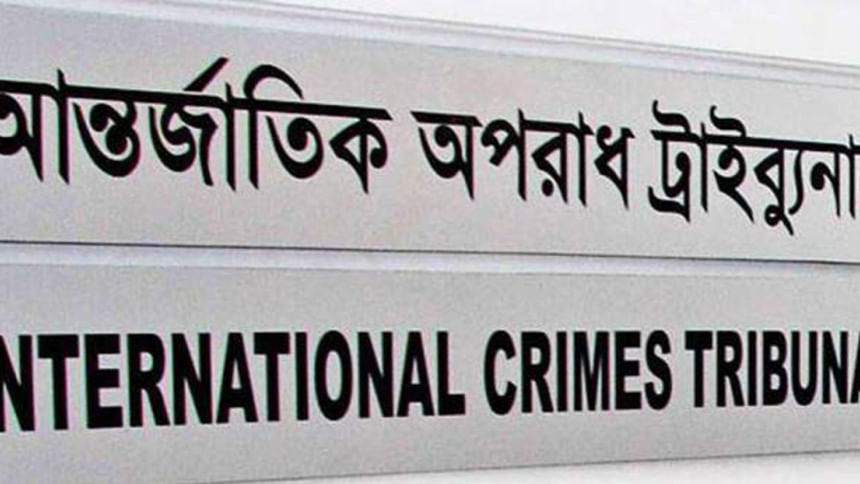Abu sayed killing: ICT-2 accepts the charges against 30

Nearly a year after the killing of Begum Rokeya University student Abu Sayed, a martyr of last year's uprising, the International Crimes Tribunal-2 has taken cognisance of charges against 30 individuals, including senior university and police officials, accusing them of murder and crimes against humanity.
The accused, including the former vice-chancellor of BRU Md Hasibur Rashid, former Rangpur Metropolitan Police commissioner Md Moniruzzaman and 28 others, face charges of murder, attempted murder, abetment, and complicity in crimes against humanity.
Sayed was shot dead on July 16 last year, in Rangpur, during a student-led protest against the quota system in government jobs. The defiance he showed against oppression before his death turned the protests into a mass uprising that eventually toppled Sheikh Hasina's regime on August 5 last year.
This is the third case concerning the July–August 2024 crackdown in which the prosecution has filed formal charges, and the first to be accepted by ICT-2.
Apart from the former VC and RMP commissioner, university proctor Shariful Islam, RMP deputy commissioner Md Abu Maruf Hossain, additional deputy commissioner Md Shah Nur Alam Patwari, who was later promoted to superintendent of police, assistant commissioner Md Arifuzzaman (Kotwali zone), Tajhat police station officer-in-charge Rabiul Islam, the university's police outpost in-charge and sub-inspector (SI) Bibhuti Bhusan Roy, assistant SI of police Amir Hossain, constable Sujan Chandra Roy, and Chhatra League leader Imran Chowdhury Akash and pro-Awami League Swadhinata Chikitsak Parishad Sarwar Hossain Chandan, are among the accused.
Those accused include eight police officers, four BRU faculty members, university staff, a physician, and activists of the ruling Awami League and its affiliates.
Among the 30 people charged, four -- Shariful, Amir, Sujan, and Imran Akash -- are currently in jail custody.
The tribunal, led by Justice Nozrul Islam Chowdhury, issued arrest warrants for the 26 absconding accused and ordered the police chief to produce them on July 10. The court also asked jail authorities to present the four in their custody on that date.
While pressing the charges, Chief Prosecutor Mohammad Tajul Islam said the former VC, proctor, RMP commissioner and his deputy bear the command responsibility and used their authority to coordinate the attack that killed Abu Sayed and injured four others.
He said they jointly issued directives to their subordinates, including ASI Amir and constable Sujan, to carry out the shooting and later altered forensic reports to obscure the truth.
He said the other accused, from their respective positions, actively took part or assisted in this killing, attack, and torture. They also compelled or facilitated the alteration of the inquest and post-mortem report of Sayed.
Describing the crimes during the uprising as both widespread and systematic, Tajul told the court that the use of lethal force against protesters had been ordered from the highest level of the then government.
"The instruction came directly from Sheikh Hasina to suppress the anti-discrimination movement and was relayed through the home minister, the inspector general of police, and subsequently to field-level commanders," he told the tribunal.
Tajul also read out selected portions of the 109-page formal charge.
"The way students and the masses took to the streets during the July uprising was unparalleled in the political history of this country. The brutality inflicted upon them constitutes crimes against humanity, committed across all 56,000 square miles of the nation," he told the court.
He then presented the historical background of the mass uprising outlined in the formal charges, mentioning the formation of the Rakkhi Bahini after the Liberation War, the 1972 election and the introduction of one-party rule, which contradicted democratic norms and disrupted the country's democratic journey.
He also referred to consistent electoral irregularities from 2008 to 2024, where opposition political forces were repressed through a joint mechanism of state and party administration.
Tajul also pointed to the destruction of the state institutions, politicisation of the executive and judiciary, and the undermining of constitutional institutions' neutrality. He further cited widespread corruption under the guise of development projects, the Shapla Chattar massacre, and the BDR carnage.
He told the court, "These incidents are not isolated—the crimes against humanity committed during the July 2024 uprising are a continuation of this pattern of criminal conduct."
The prosecution also submitted witness statements, 13 videos, two audios, and other supporting documents to the tribunal supporting the charges brought against the accused.
In the formal charge, 46 persons have been made witnesses.
A prosecutor said an assistant professor of forensic medicine at the Rangpur Medical College, Dr Rajibul Islam, who was forced to alter the inquest and autopsy report of Sayed is among the witnesses.

 For all latest news, follow The Daily Star's Google News channel.
For all latest news, follow The Daily Star's Google News channel. 



Comments